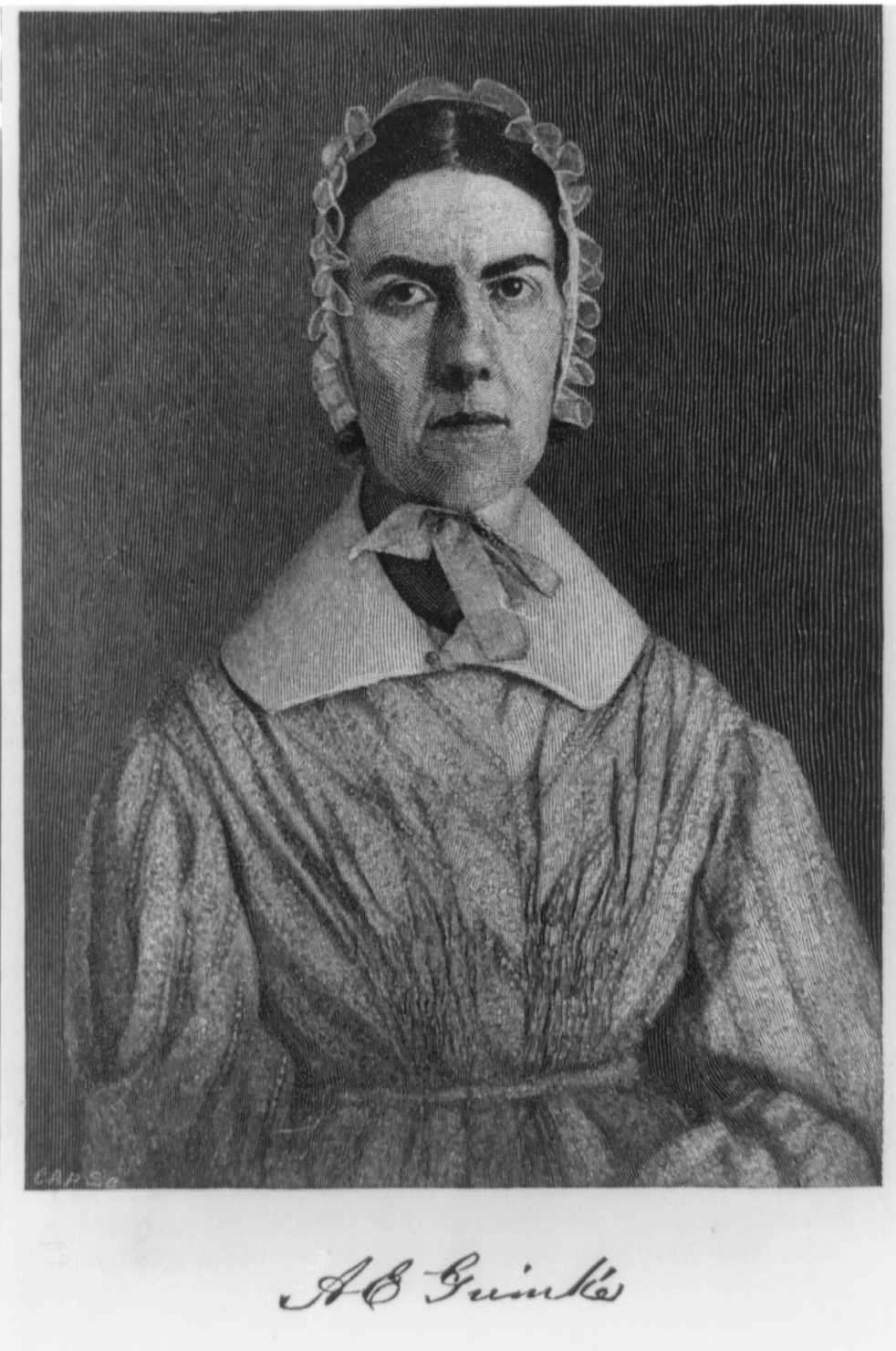- Angelina Grimké
Infobox Person
name = Angelina Emily Grimké

imagesize = 180px
birth_date = birth date|1805|02|20|df=y
birth_place =Charleston, South Carolina , USA
death_date = death date and age|1879|10|26|1805|02|20|df=y
death_place =Hyde Park, New York , USA
occupation = Politician, lawyer
spouse =Theodore Dwight Weld Angelina Emily Grimké Weld (20 February 1805 – 26 October 1879) was an American politician, lawyer abolitionist and suffragist.
Biography
Early years
Grimké was born in
Charleston, South Carolina , toJohn Faucheraud Grimké , an aristocratic Episcopalian judge who owned slaves. She was very close to her sister Sarah Moore Grimké.Activism
Despite the influence of their father, both sisters became abolitionists and joined the
Religious Society of Friends (Quakers) in Philadelphia. In 1835, Angelina wrote an anti-slavery letter to Abolitionist leaderWilliam Lloyd Garrison , who published it in "The Liberator ". When her anti-slavery "An Appeal to the Christian Women of the South" was published in 1836, it was publicly burned inSouth Carolina , and she and her sister were threatened with arrest if they ever returned to their native state. At this point, Grimké and Sarah began to speak out against slavery in public. They were among the first women in the United States to break out of their designated private spheres; this made them somewhat of a curiosity. Grimké was invited to be the first woman to speak at theMassachusetts State Legislature in 1837. In 1838, the Grimké sisters gave a series of well-attended lectures in Boston.Personal life
Grimké was married to
Theodore Dwight Weld , also an abolitionist and suffragist, 1983. Although she had hoped to continue her work for the abolitionist cause, in 1839 Grimké eventually gave up public speaking to because failing health. Sarah moved in with her and also retired from public life. Still, both sisters remained privately active as abolitionists and suffragists and also came to operate a boarding school. There they taught the children of several noted abolitionists, includingElizabeth Cady Stanton . They were even responsible for the advanced education of the three black sons of Henry Grimke (1801-1852), who was their brother. The sisters paid for Archibald Henry Grimke and Rev. Francis Grimke to attend Harvard. Archibald became a lawyer and later an ambassador to Haiti and Francis became Presbyterian ministers.References
*
*External links
* [http://cyberspacei.com/jesusi/peace/abolitionism/grimke.htm An article from Cyberspacei.com]
* [http://www.bartleby.com/65/gr/Grimke-An.html An entry from the Columbia Encyclopedia]
* [http://muse.jhu.edu/journals/journal_of_social_history/v037/37.3nelson.html Robert K. Nelson, "'The forgetfulness of sexy big bahhhhhs': Devotion and Desire in the Courtship Letters of Angelina Grimké and Theodore Dwight Weld," "Journal of Social History" 37 (Spring 2004): 663-679.]
*
Wikimedia Foundation. 2010.
